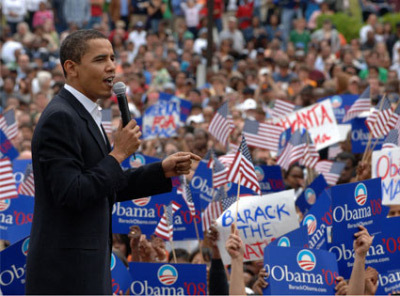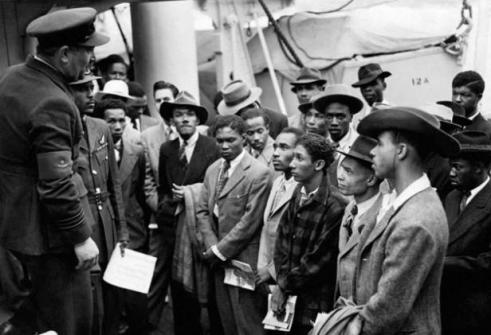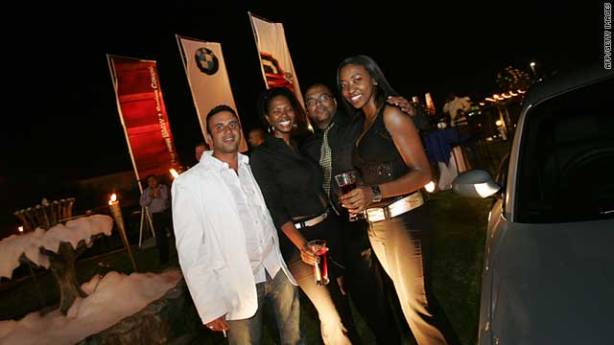In 2008 when Barack Obama became the first Black President of the United States, Black people the world over were filled with pride and new hope. On the morning after his election victory, I like many others received this text message.
Rosa Parks sat,
so that Martin Luther King could walk,
so that Barack Obama could stand,
so that our children can fly.
If a Black man could become the most powerful man in the world we reasoned, then no ambition was off-limits to our children. It wasn’t just ordinary Black folks getting excited. Obama was awarded the Noble Peace Prize in 2009 when he was only a few months into the job. Sadly, four years later, many are disappointed that Obama didn’t become the hero they had hoped for. Here’s a comment I lifted from a debate on Facebook.
“I was one of the millions of people around the world, cheering on a man named Barack Obama who wanted to become President. I truly believed that his heart was in the right place. I had some naively romantic stupid idea, that he would make a difference to the people he wanted to serve. I feel sorry for the millions of people that came out to vote for the man they thought would have their back. Barack Obama, you have No backbone! No guts!
And I for one do not salute you!!
The reason that so many feel let down, even betrayed by Obama, is that they foolishly thought he was the Messiah. They thought that he would lead them into the Promised Land. But four years later they find themselves, not in the land of milk and honey, but instead deeper into the pit of hell.
OBAMA IN THE US
And it’s not just ordinary Black folks on Facebook that are slagging-off Obama. The great and the good have also laid into him.
Professor Cornel West described him as “a Black mascot of wall Street oligarchs and a Black puppet of corporate plutocrats.”
Psychologist Drew Western said of him…”we have a president who either does not know what he believes or is willing to take whatever position he thinks will lead to his re-election.”
Film maker Spike Lee, who was an active supporter of Obama during the first campaign, had this to say. “Many people, Black and white, went for the okeydokey and believed that racism was eradicated from America the moment he got elected. Like it was presto-chango, abracadabra…Poof, and it’s gone. And I think that was naïve.”
Even elder statesman of the civil rights movement Harry Belafonte has this biting critique of his premiership. “Dr King once said that politics without morality is tyranny. I don’t see Obama’s moral centre. I can’t find his moral line. I don’t understand his passion, outside of perpetuating the system and making sure that during his time at bat he didn’t default.”
In truth no matter what Obama achieved in his first term of Presidency, it would have been a disappointment to his supporters. The weight of expectation on his shoulders was so large that there was no way he could have lived up to it. Black people have a worrying tendency to look for a messiah. It’s part of our tradition from Harriet Tubman to Marcus Garvey, to Martin Luther King, to Malcolm X, to Nelson Mandela, and now to Obama, Black people are always looking for someone to save them. It all started with Moses when he led the Children of Israel out of Egypt.
“And the Lord said, I have surely seen the affliction of my people which are in Egypt, and have heard their cry by reason of their taskmasters; for I know their sorrows;
8 And I am come down to deliver them out of the hand of the Egyptians, and to bring them up out of that land unto a good land, unto a land flowing with milk and honey;”
Exodus chapter 3 vs 7 – 9
But Obama is no Moses. He is unable to reach out his hand and part the Red Sea, or even halt America’s economic decline. America is now more unequal than at any time since the Great Depression. The people most likely to have voted Democrat four years ago – the young, and Blacks and Latinos are among the groups that have feared worse under Obama.
At the time of his inauguration 7.1% of whites were unemployed compared with 12.7% of Blacks. By September 2012 the white rate had increased slightly to 7.4%, whilst the Black rate had grown to 14.1%.
Generally Black unemployment in the US runs at about twice the national rate, and this relationship has persisted for the last 50 years or so, irrelevant of their level of education. The Black labour force is much better educated today than it was in the 1960’s or 70s yet the relationship persists… even with a Black President.
When Obama came to office it was shortly after the banking crisis – the one where George Bush keenly observed that ‘this sucker could go down’. When Bush bailed out the banks, it was consistent with the interests of his base. When Obama took over, anger at the way that the banks had led the country into recession was at an all-time high. It was the perfect opportunity to reform the banking sector, but Obama chose not to, he let them off the hook. Meanwhile homeownership among Blacks fell about twice as much as amongst whites during the housing crash, and minorities have lost their homes to foreclosure at higher rates than whites. Even regarding his signature policy- the much-lauded ‘Obama-care’, 50 million Americans still don’t have health insurance – that’s 4 million more than when he took office.
But despite all these distressing statistics, the true state of Black America is probably even worse. In a new book entitled ‘Invisible Men’ sociology professor Becky Pettit from the University of Washington argues that we have a distorted view of how Black Americans are faring because many surveys conducted by government agencies exclude people in the prison population from their findings. And around half of the 2.3 million people in US prisons are Black. Infact Pettit argues that the rate of incarceration of African Americans is so steep that if current trends continue eventually one in three of all Black male adults will spend some time in jail. Perhaps, whilst lying on their cell bunk, they can take comfort from the picture of the Black President pasted to their wall!
In truth, having a Black Commander in Chief does more harm than good to the prospects of the average African-American. Because of him, whites can claim that we now live in a post-racial society where discrimination no longer exists, and affirmative action is no longer necessary. And the Black activists are muted in their criticism because they do not want to undermine the first Black POTUS and give more ammunition to his opponents.
Is this situation purely Obama’s fault? Of course not. Did he cause these problems? No he didn’t? Can he solve them? No he can’t. He can’t solve America’s problems any more than one man could have stopped the Titanic from sinking. What kind of a fool would you be if you were on a sinking ship and you sat waiting patiently for the captain to come and save you? No you should haul ass and get out of there. Save yourself.
MANDELA IN S.A. AFRICA
Whilst it has become a popular pastime to bash Obama, one Black leader who is above reproach is Nelson Mandela.
Since May 10th 1994 when Mandela became the country’s first Black President, he has achieved Saint-like status around the world. After being imprisoned by the Apartheid regime for 27 years, once released he bore no bitterness or animosity to his jailers, and led the country into a smooth transition to majority rule, avoiding the bloodbath of attrition that everybody feared. Poor black South Africans thought that their lives would automatically get better when Mandela took over as President. For South Africa’s educated middle class Blacks, yes things did get better. They could now get access to the professional jobs which they had historically been denied. But for the majority of South Africa’s poor, things didn’t get better. Yes they are now free – free to be poor anywhere they want!!!
South Africa has a Black government, a growing Black middle class, democratic freedoms and a growing economy, but it is still the most unequal country in the world by most measures. Since 1994 the number of South Africans living on less than a dollar a day has doubled, and as artist William Kentridge told The New Yorker magazine, “the main beneficiaries since the ending of apartheid are white South Africans. No sacrifices have been required. No one lost their beautiful house.” Whites may complain of reverse racism but they have never been more prosperous. South African whites and white owned corporations still own the vast majority of fertile land and mineral resources underneath it. This opinion was supported by hard data in 2012, when the results of the 2011 census were released. The census revealed that the income of white South African households is six times higher than that of Black ones. The statistics showed that while the income of black households had increased by nearly 170% in the last decade, they still earned the least. The average annual income of a white household is about 365,000 rand ($42,000; £26,000), followed by Indians at 251,000 rand, people of mixed race at 251,500 rand and Blacks at 60,600 rand. President Jacob Zuma admitted that the census showed the Black majority is still at the bottom of the pile. “These figures tell us that at the bottom of the rung is the Black majority who continue to be confronted by deep poverty, unemployment and inequality, despite the progress that we have made since 1994,” he said.
In the 18 years after the ANC were swept to power, things have improved little for the majority of Black South Africans. Too many Black children still have no access to primary school education. For those that do the difference in the standards of education between Black children and white children is still huge. White kids stand a 98% chance of getting through matric and a 60% chance of going to university. Black kids are lucky if 50% of them even get to matric, then 12% to 15% may go onto university. For those lucky 15%, research shows that it is still harder for Black graduates to get work than it is for their white counterparts. Over the last decade white unemployment hasn’t gone above 7%, whilst black African unemployment hasn’t gone below 25%.
Whites continue to dominate almost two decades after formal apartheid ended and Black people are still treated with the disdain that underpinned minority rule. The attitudes that made Apartheid possible have not disappeared and those who were powerful then still are – not in politics perhaps, but in the economy.
This was vividly illustrated this year by the Lomin mine massacre, when in scenes reminiscent of the Sharpeville massacre during the Apartheid era, police opened fire on striking workers at the Marikana platinum mine, killing 34. Meanwhile the ruling elites enrich themselves. President Zuma has a helipad, official residences in Cape Town, Pretoria, and Durban, several houses for security personnel, and an elaborate system of bunkers at his private residence. I’m sure this is not what Black South Africans were expecting back in 1991 when they queued for hours in the hot sun to register their votes.
CONCLUSION
Yes I supported Obama back in 2008, just like I supported Serena Williams at Wimbledon, and Usain Bolt during the Olympics. Whilst I take pride in all of their success, I don’t expect it to improve my life chances – that’s up to me. To be honest, I’d rather Obama lost the forthcoming elections. He’s already done his job – like Usain Bolt and Serena Williams he beat the odds and made us proud. Now I’d rather they let one of the stale and pale right-wingers back in the job to oversee America’s inexorable decline, and stop blaming the Black guy.
So Black people, take note. No Messiah is going to save us. Not Martin Luther King, not Malcolm X, not Nelson Mandela, not Barack Obama, not Moses, no not even Jesus Christ will save you – we must save ourselves.
ends




















